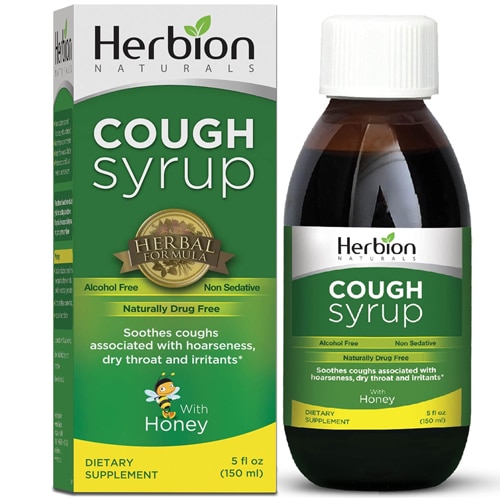[vc_row][vc_column][vc_column_text]Even during summer, it can seem like everyone is getting sick. Lots of people are traveling, kids go back to school, and all the mixing and mingling leads to those dreaded summer colds.
However, fall and winter remain the ultimate
cold and flu season. As temperatures drop, we spend more time in close quarters indoors and our
immune systems take a dip, creating the perfect storm for viruses to spread.
No one
wants to get sick, and it always seems to happen at the most inopportune time. So, is there anything you can do to prevent getting sick? Actually, yes. Preventing illness 100% of the time is next to impossible, but there are some precautionary measures you can take. Here’s how to
bolster your immune system and avoid sickness this cold and flu season (as best as you can, at least).

How to Prevent Getting Sick
1. Wash your hands
Germs are everywhere—on handrails, elevator buttons, keypads and other
high-touch surfaces. They’re even in the air. While they’re not all bad, some germs can get you sick. If you’re trying to avoid just that, some good old handwashing can help.
Just how effective is washing your hands? It can prevent about 30% of diarrhea-related sicknesses and about 20% of respiratory infections, according to the
Centers for Disease Control and Prevention (CDC).
We could all use a refresher from time to time, so here are some hand hygiene tips the CDC wants you to know:
- You don’t need any special or antibacterial soap. Any plain hand soap, such as Meyer's Clean Day Liquid Hand Soap, will get the job done.
- Use clean running water—the temperature doesn’t matter much.
- Work your hands into a good lather, and don’t forget to scrub the backs of your hands, between the fingers and under the nails.
- Give it a full 20 seconds before rinsing under clean running water.
- Dry your hands after since germs love wet surfaces.
2. Practice social distancing
The common cold, flu and COVID-19 are all viruses, and viruses are highly contagious. They mainly spread through inhalation or physical contact. A sick person can expel contaminated droplets from coughing and sneezing or spread germs through the surfaces they touch. When these drops or germs enter your body, you can catch what they have.
How to avoid this? Keep your distance. Avoid close contact with people who are sick, but if you want to protect yourself further, practice social distancing. Someone who has caught a cold can be contagious before they themselves even realize it. The time between the point of infection and onset of symptoms is known as the incubation period, according to the Cleveland Clinic. During this period, someone can be asymptomatic yet contagious, hence the social distancing.
Now, we can’t all stay cooped up forever. Many of us have work, school, errands and so forth. Should you prefer an additional layer of protection, consider wearing a face mask or covering. There’s some evidence that
face masks reduce the transmission of COVID-19.
3. Get lots of vitamins
Vitamins aren’t just nice to have—many of them are essential for overall health. Each vitamin usually plays several roles in the body, some of which have to do with the immune system.
The most obvious one is vitamin C, but vitamins D and E along with some B vitamins can also support healthy immune function.
Some research suggests that adequate dietary intake of these vitamins could help prevent respiratory viruses, such as COVID-19, colds and flu.
Other sources suggest certain nutrients simply reduce the duration or severity of sickness but may not be significant for prevention.
Regardless, getting your vitamins in is a good idea. You can do this through food or supplementation, such as
MegaFood’s Daily Immune Support, which provides vitamins C and D. Just be sure to discuss with a healthcare professional before starting any new supplement.
4. Clean high-touch surfaces
Sure, in public spaces, certain surfaces are hot spots for germs. But what about in your own home? The CDC says it’s a good idea to clean any frequently touched surfaces, such as countertops and doorknobs. This can also include light switches, tables, faucets and so on.
According to the Mayo Clinic,
cleaning these high-touch surfaces is usually enough to reduce risk. But in some cases, such as when someone in your household is sick, you may need to break out the disinfectants.
For regular cleaning, consider a multipurpose spray, such as the
Seventh Generation All Purpose Cleaner. For disinfecting, try the
Seventh Generation Disinfecting Cleaner With Hydrogen Peroxide.
5. Avoid touching your mouth, nose and eyes
The average person touches their face dozens of times every hour, according to the
Cleveland Clinic. We all do it, and often without even thinking about it, but doing so could spread germs.
You don’t have to stop touching your face altogether, but try to keep a couple things in mind. First, your mouth, nose, and eyes are the top places to avoid touching because these are mucous membranes. This matters because respiratory viruses are transmitted through contact with mucous membranes. Second, the issue is mainly with unwashed hands. This is another reason to wash your hands frequently.
7. Improve indoor air quality
The CDC considers taking steps for
cleaner air a core strategy for preventing COVID-19. As previously mentioned, respiratory viruses can spread through droplets in the air, which can enter your body when you inhale.
To protect against airborne particles, the
CDC recommends the following:
- Let in some fresh air. Open doors and windows or use exhaust fans.
- Use a central heating, ventilation and air conditioning system to circulate air.
- Use a portable air cleaner or purifier with a high-efficiency particulate air (HEPA) filter.
- Take gatherings and activities outside.
8. Stay up-to-date on vaccinations
Getting vaccinations isn’t all that fun, but there’s a reason why they’re highly recommended. Take the flu vaccine, for example. It’s the best way to reduce the risk of flu as well as flu complications, per the
CDC. There’s similar data on the COVID-19 vaccine—it’s been shown to
protect against severe outcomes, though boosters may be needed to maintain effectiveness.
9. Adopt generally healthy habits
Eating a
nutritious diet, getting enough sleep, and
managing stress levels are always important. Checking these healthy lifestyle boxes can also support a healthy immune system,
some research suggests. Though it can be difficult to juggle it all, try to build upon your existing healthy habits with the following in mind:
- Eat plenty of fruits and vegetables to get a wide array of antioxidants and other nutrients
- Aim for at least 7–8 hours of uninterrupted sleep each night
- Avoid harmful substances like alcohol and tobacco
- Do activities that promote relaxation and reduced stress
- Engage in regular physical activity
There you have it—nine research-backed strategies to reduce the risk of getting sick this fall and winter. While illness is sometimes unavoidable, heeding this advice could help you get through cold and flu season without a hitch.[/vc_column_text][/vc_column][/vc_row][vc_row][vc_column][vc_text_separator title="Featured Products" border_width="2"][vc_row_inner equal_height="yes" content_placement="middle" gap="35"][vc_column_inner width="1/3"][vc_single_image image="188222" img_size="full" alignment="center" onclick="custom_link" img_link_target="_blank" css=".vc_custom_1758659574227{padding-right: 7% !important;padding-left: 7% !important;}" link="https://www.vitacost.com/sambucol-black-elderberry-cold-and-flu-relief"][/vc_column_inner][vc_column_inner width="1/3"][vc_single_image image="188221" img_size="full" alignment="center" onclick="custom_link" img_link_target="_blank" css=".vc_custom_1758659592529{padding-right: 7% !important;padding-left: 7% !important;}" link="https://www.vitacost.com/megafood-daily-immune-support-with-vitamin-c-vitamin-d-zinc"][/vc_column_inner][vc_column_inner width="1/3"][vc_single_image image="188220" img_size="full" alignment="center" onclick="custom_link" img_link_target="_blank" css=".vc_custom_1758659618980{padding-right: 7% !important;padding-left: 7% !important;}" link="https://www.vitacost.com/seventh-generation-disinfectant-wipes-lemongrass-citrus-70-wipes"][/vc_column_inner][/vc_row_inner][/vc_column][/vc_row]




